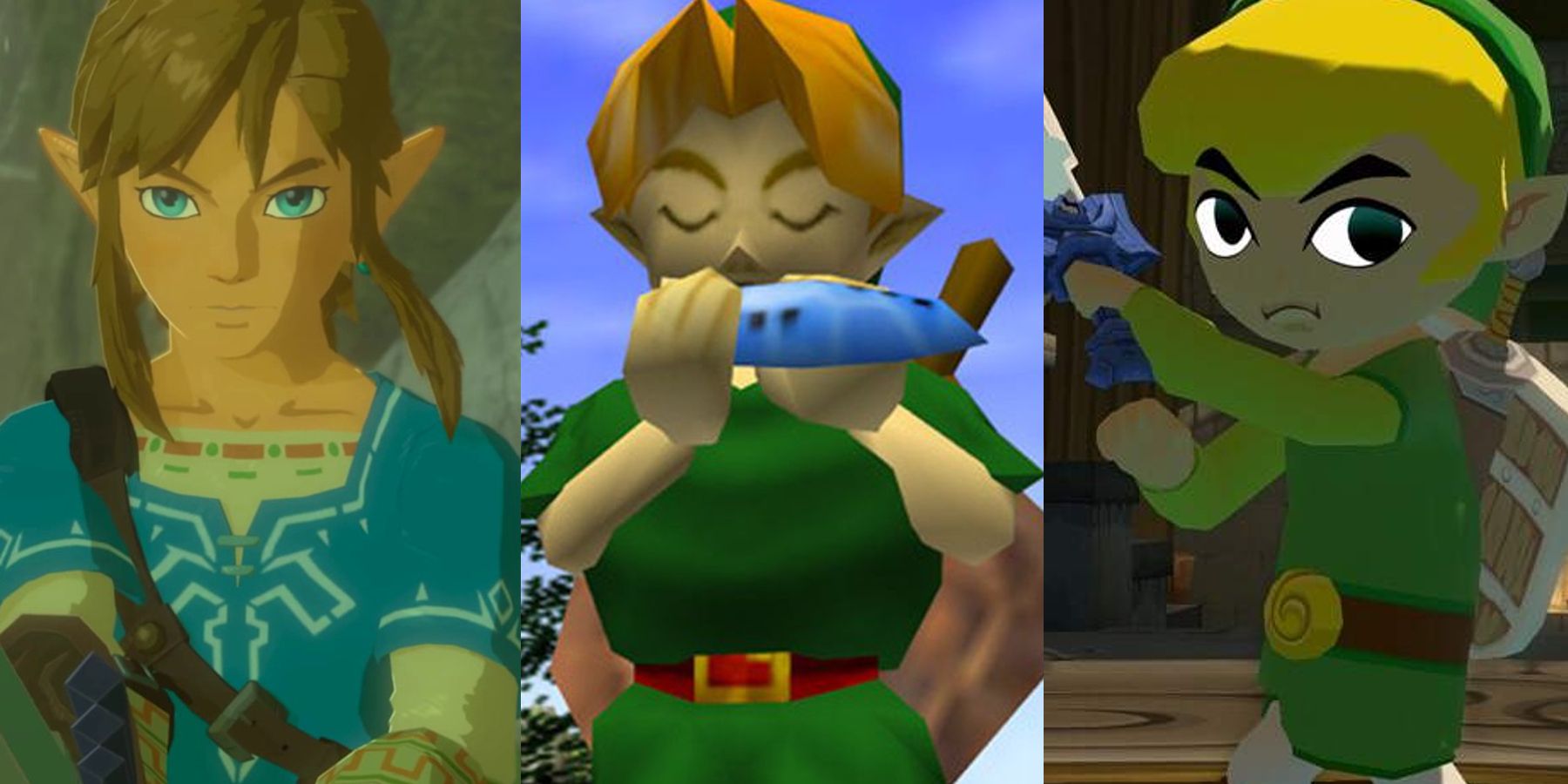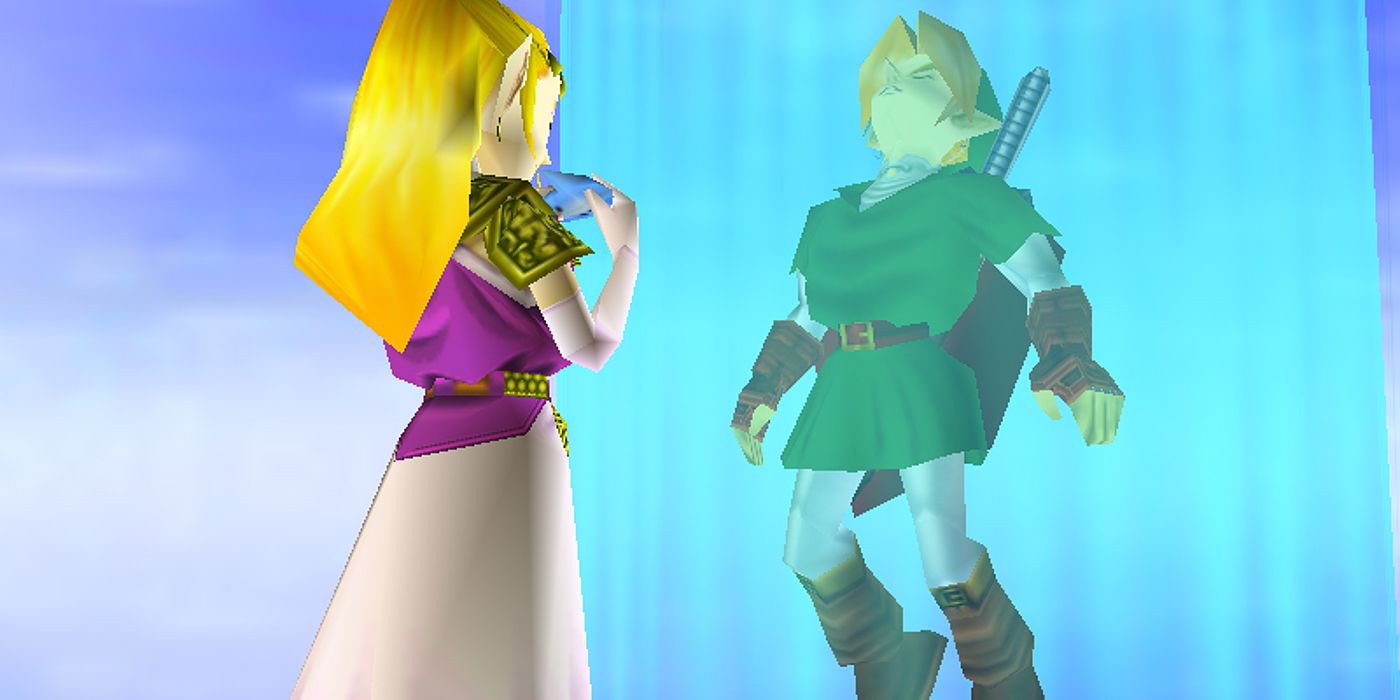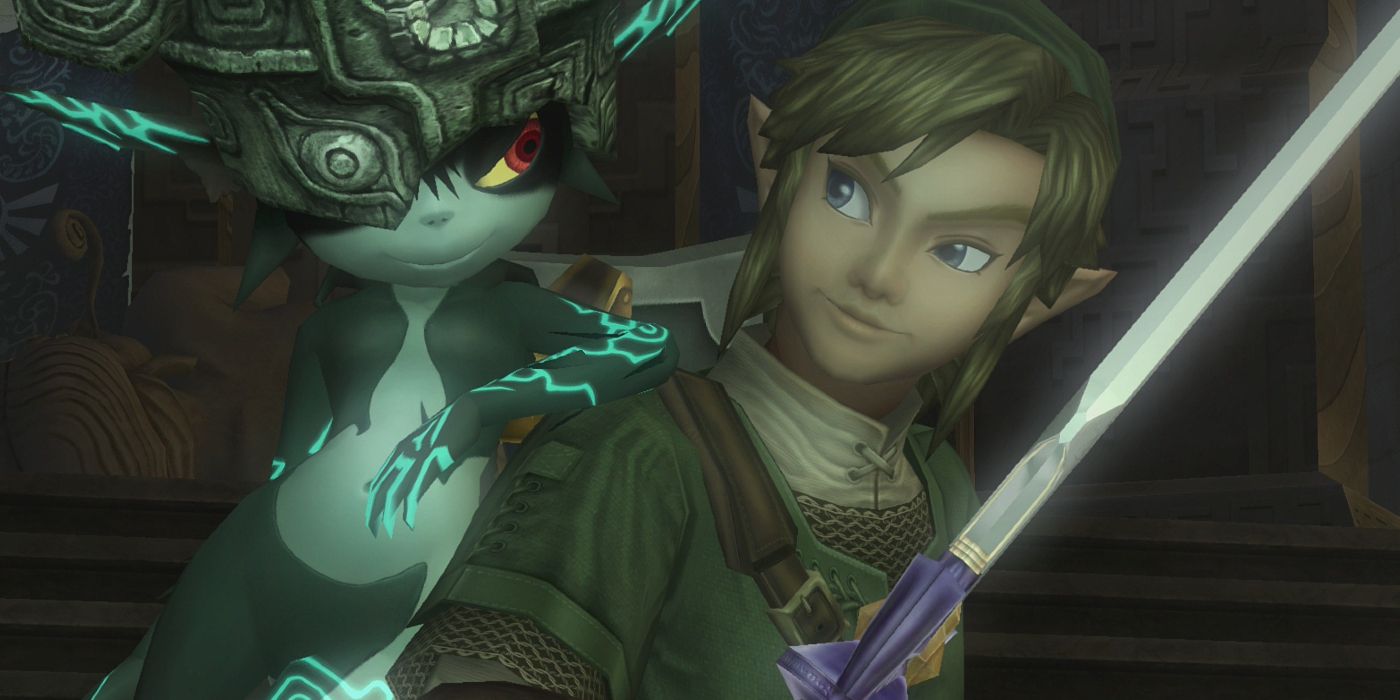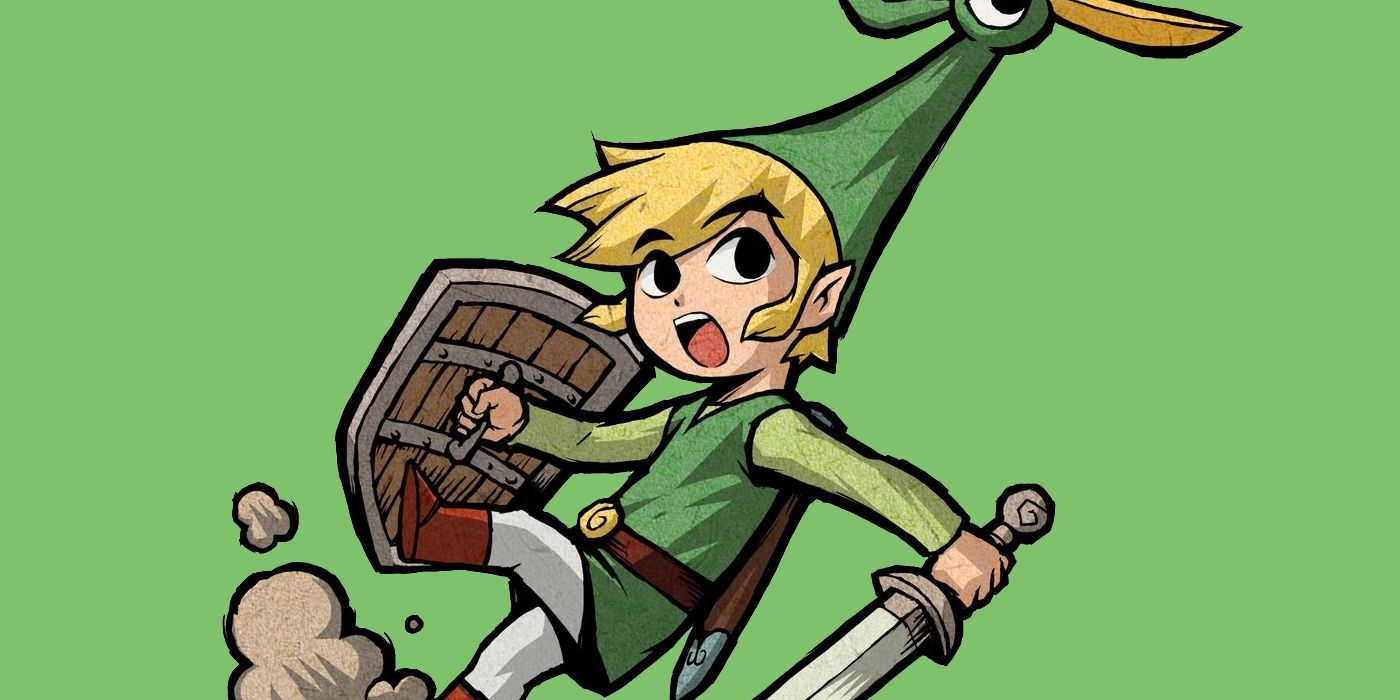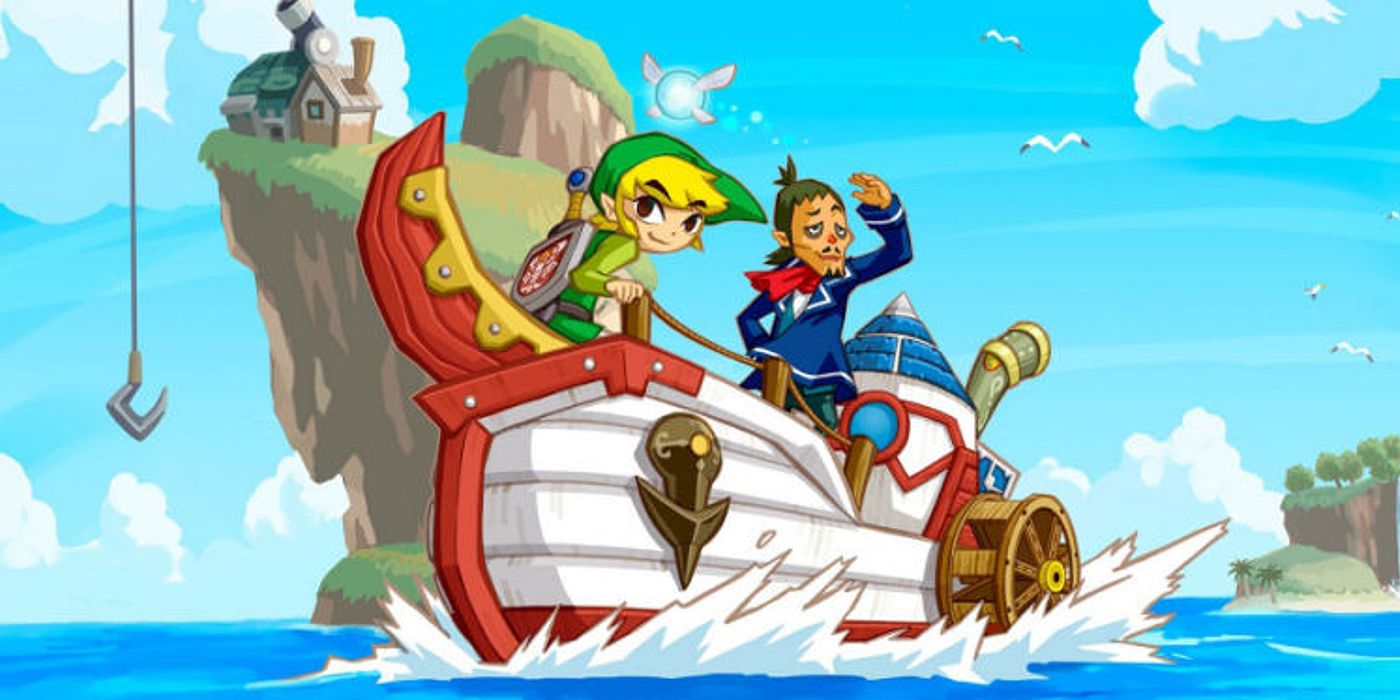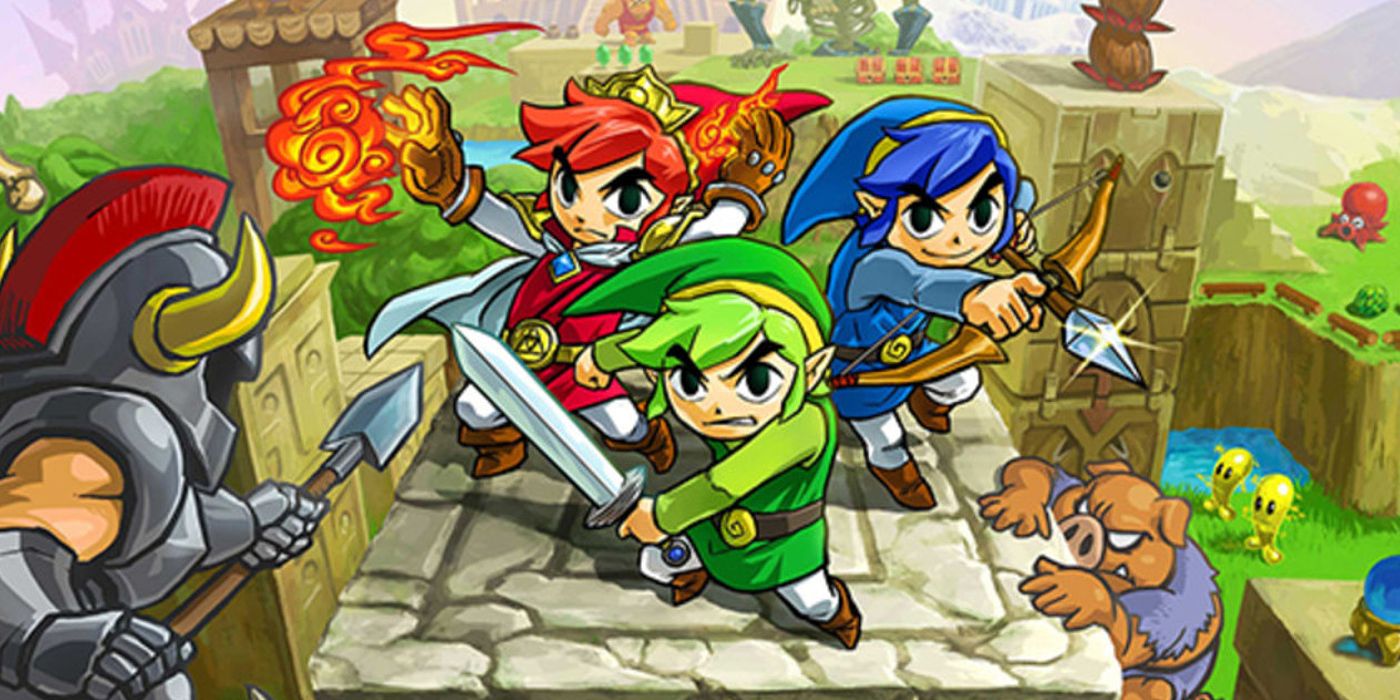It is hard to argue against the idea that The Legend of Zelda is one of the best video game franchises ever made. In terms of sales records, popularity, and critical reception, titles from The Legend of Zelda tend to perform extremely well—often ranking as the best games of their respective release years. As with any major franchise, fans often debate which game is truly the best of the bunch.
With The Legend of Zelda franchise, this task seems more impossible than ever. Ever since the franchise began, fans have jumped around deciding which game is their favorite. For many, the series peaked with Ocarina of Time, but there's also a growing contingent making a case for Breath of the Wild. The reason ranking The Legend of Zelda franchise presents such a unique challenge is because it involves picking between the highest-rated games on Metacritic.
S-Tier
- Ocarina of Time: The single highest-rated video game on Metacritic, Ocarina of Time is a nuanced coming-of-age story that gut-punches fans with nostalgia every time it's brought up. It may never be dethroned from its position at the top of the Zelda franchise or video games in general.
- Breath of the Wild: Given the praise that Ocarina of Time received, it's an understatement to say that subsequent Zelda games have had big shoes to fill. For many, Breath of the Wild is the first game to successfully measure up to, and even surpass, Ocarina of Time. With the Breath of the Wild sequel set for 2023, fans could once again see a challenger for the top spot.
- Majora's Mask: While Ocarina of Time wasn't exactly all sunshine and rainbows, Majora's Mask truly introduced a darker side to the Zelda franchise. From the omnipresent threat of the moon to the glib but unaffected villagers of Clock Town, Majora's Mask was, to put it lightly, unsettling. However, it also managed to impart a sense of seriousness and urgency unlike any other Zelda game before or since.
- A Link to the Past: After one of the most disastrous direct sequels in Zelda's history, A Link to the Past righted the ship and set the tone for the future of the franchise. It introduced or reinforced basically every essential element of the Zelda franchise. If not for A Link to the Past, there would be no Ocarina of Time or Breath of the Wild.
- Wind Waker: While fans were initially hard on Wind Waker's childish and light-hearted style, it was the perfect departure from Majora's Mask and its predecessors. Along with its cartoony graphics came a degree of pure, unadulterated fun that puts it in the same conversation as any of the other great Zelda games.
A-Tier
- Twilight Princess: Through its slow introduction, Twilight Princess fosters a level of attachment to the surrounding world better than almost any other Zelda game. It also boasts arguably the best-designed dungeons in the franchise. Further, Link's beloved companion Midna originates in Twilight Princess, which automatically earns it a lot of points. It only barely misses the S-tier for its small and sometimes empty-feeling overworld.
- The Legend of Zelda: It may seem blasphemous to put the game that started it all in A-tier, but it simply can't compete with its SNES counterpart, A Link to the Past. Yes, it's arguably the most inspirational title in video game history, with every subsequent Zelda game owing to it as well as recent games like Tunic, but subsequent games have improved on it enough to sit above it.
- Link's Awakening: Whether it's the version for the Game Boy, Game Boy Color, or the Switch remake, Link's Awakening is a beautiful example of the quirkier side of the Zelda franchise. It's hard to imagine a fan of Wind Waker not enjoying Link's Awakening.
- A Link Between Worlds: A Link Between Worlds is one of the best 3DS games of all time. It bears the hallmark of any great game in the franchise; it innovated just enough over past games without throwing out the tried-and-true Zelda formula.
- Skyward Sword: The HD remake of Skyward Sword proved that the original game was simply an unpolished gem. Once Nintendo changed characters like Fi and removed most of the annoying features that had slowed down the original game, Skyward Sword started to feel like a classic Zelda experience.
B-Tier
- The Minish Cap: The Minish Cap remains one of the most polarizing entries in the Zelda franchise. It's short and unforgivably easy at times, but it also boasts a lot of charm. For what it's worth, The Minish Cap is a perfect remake candidate, as it could add the depth and difficulty that its detractors believe hold it back from being a truly great game.
- Oracle of Ages/Seasons: A set of Game Boy-era titles that could be due for a Switch remake. Like The Minish Cap, Oracle of Ages/Seasons implemented at least one or two majorly intriguing mechanics but fell just short in the overall design, making them logical choices for a polish up.
- Spirit Tracks: It was a bold move by Nintendo to revisit the Phantom Hourglass formula after its negative reception, but Spirit Tracks manages to succeed where Phantom Hourglass failed. It's an immersive experience that had the player interacting with the game like never before, but it was bogged down by being a bit too repetitive.
C-Tier
- Phantom Hourglass: A C-tier Zelda game is still a very solid game, but Phantom Hourglass just can't compete with its sequel, Spirit Tracks. If rumors of a Switch remake of Phantom Hourglass are true, Nintendo could easily fix the game's shortcomings in terms of its controls and its infamously bad dungeon, Temple of the Ocean King.
- Zelda 2: The Adventure of Link: Zelda 2 is propped up fairly heavily by nostalgia. It was unbelievably difficult and riddled with a bunch of unpolished moments that don't belong in any Zelda game. It's worth playing if only to revisit the franchise's beginnings and experience something totally different.
- Four Swords Adventure: While it is the best of the bad multiplayer Zelda games, the idea of using a Game Boy Advance as a controller on the GameCube was simply awkward.
D-Tier
- Tri Force Heroes: Tri Force Heroes is a fine game, but it only superficially feels like a Zelda game. The biggest gripe from fans—and one that is impossible to ignore—is that Tri Force Heroes more or less forces players into multiplayer. It offers a sort of mindless fun, but shouldn't be picked up over nearly any other Zelda game.
- Four Swords: Not to be confused with Four Swords Adventures for the GameCube, Four Swords was the Zelda franchise's first instance of forced multiplayer and was an absolutely disastrous move. While it was enjoyable when it could be pulled off, getting two to four friends to buy a game that could only be played together was a major headache. The Anniversary Edition, which added a single-player mode almost a decade later, didn't do much to save this Legend of Zelda game's reputation.

